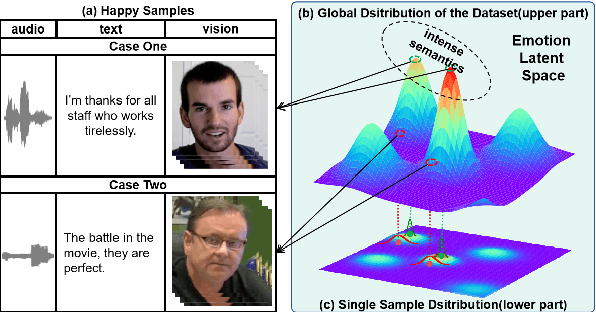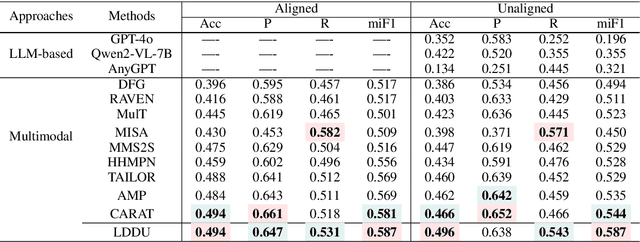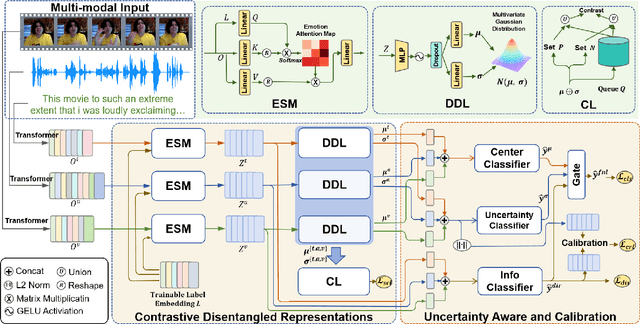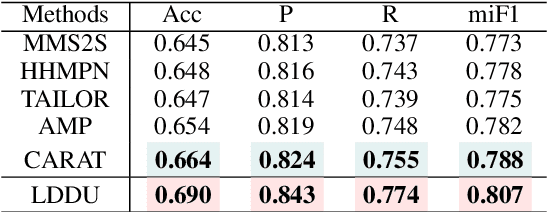Jingwang Huang
ReasonTabQA: A Comprehensive Benchmark for Table Question Answering from Real World Industrial Scenarios
Jan 12, 2026Abstract:Recent advancements in Large Language Models (LLMs) have significantly catalyzed table-based question answering (TableQA). However, existing TableQA benchmarks often overlook the intricacies of industrial scenarios, which are characterized by multi-table structures, nested headers, and massive scales. These environments demand robust table reasoning through deep structured inference, presenting a significant challenge that remains inadequately addressed by current methodologies. To bridge this gap, we present ReasonTabQA, a large-scale bilingual benchmark encompassing 1,932 tables across 30 industry domains such as energy and automotive. ReasonTabQA provides high-quality annotations for both final answers and explicit reasoning chains, supporting both thinking and no-thinking paradigms. Furthermore, we introduce TabCodeRL, a reinforcement learning method that leverages table-aware verifiable rewards to guide the generation of logical reasoning paths. Extensive experiments on ReasonTabQA and 4 TableQA datasets demonstrate that while TabCodeRL yields substantial performance gains on open-source LLMs, the persistent performance gap on ReasonTabQA underscores the inherent complexity of real-world industrial TableQA.
Benchmarking Multimodal RAG through a Chart-based Document Question-Answering Generation Framework
Feb 20, 2025Abstract:Multimodal Retrieval-Augmented Generation (MRAG) enhances reasoning capabilities by integrating external knowledge. However, existing benchmarks primarily focus on simple image-text interactions, overlooking complex visual formats like charts that are prevalent in real-world applications. In this work, we introduce a novel task, Chart-based MRAG, to address this limitation. To semi-automatically generate high-quality evaluation samples, we propose CHARt-based document question-answering GEneration (CHARGE), a framework that produces evaluation data through structured keypoint extraction, crossmodal verification, and keypoint-based generation. By combining CHARGE with expert validation, we construct Chart-MRAG Bench, a comprehensive benchmark for chart-based MRAG evaluation, featuring 4,738 question-answering pairs across 8 domains from real-world documents. Our evaluation reveals three critical limitations in current approaches: (1) unified multimodal embedding retrieval methods struggles in chart-based scenarios, (2) even with ground-truth retrieval, state-of-the-art MLLMs achieve only 58.19% Correctness and 73.87% Coverage scores, and (3) MLLMs demonstrate consistent text-over-visual modality bias during Chart-based MRAG reasoning. The CHARGE and Chart-MRAG Bench are released at https://github.com/Nomothings/CHARGE.git.
Latent Distribution Decoupling: A Probabilistic Framework for Uncertainty-Aware Multimodal Emotion Recognition
Feb 19, 2025



Abstract:Multimodal multi-label emotion recognition (MMER) aims to identify the concurrent presence of multiple emotions in multimodal data. Existing studies primarily focus on improving fusion strategies and modeling modality-to-label dependencies. However, they often overlook the impact of \textbf{aleatoric uncertainty}, which is the inherent noise in the multimodal data and hinders the effectiveness of modality fusion by introducing ambiguity into feature representations. To address this issue and effectively model aleatoric uncertainty, this paper proposes Latent emotional Distribution Decomposition with Uncertainty perception (LDDU) framework from a novel perspective of latent emotional space probabilistic modeling. Specifically, we introduce a contrastive disentangled distribution mechanism within the emotion space to model the multimodal data, allowing for the extraction of semantic features and uncertainty. Furthermore, we design an uncertainty-aware fusion multimodal method that accounts for the dispersed distribution of uncertainty and integrates distribution information. Experimental results show that LDDU achieves state-of-the-art performance on the CMU-MOSEI and M$^3$ED datasets, highlighting the importance of uncertainty modeling in MMER. Code is available at https://github.com/201983290498/lddu\_mmer.git.
 Add to Chrome
Add to Chrome Add to Firefox
Add to Firefox Add to Edge
Add to Edge